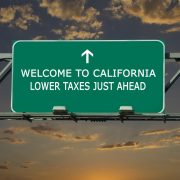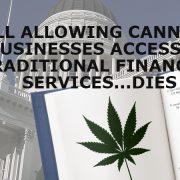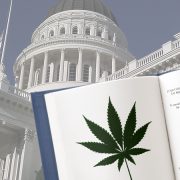California Responding To COVID-19 With Relief For Cannabis Businesses
California Responding To COVID-19 With Relief For Cannabis Businesses
On May 14, 2020 the three State Of California cannabis licensing authorities (The Bureau of Cannabis Control (BCC), California Department of Food & Agriculture (CDFA) and California Department of Public Health (CDPH)) announced that businesses with state commercial cannabis licenses expiring between now through June 30, 2020 may request 60-day deferrals of their license fee payments.
The license fee deferrals are intended to provide immediate financial assistance to state cannabis licensees impacted by COVID-19. License fee deferrals may be requested by those with a state cannabis license expiring between now and June 30, 2020. With a deferral, the license fee will be due 60 days from the date of the license expiration. Refunds will not be given for fees that have already been paid.
Although cannabis businesses are deemed to be an “essential business” under Executive Order N-33-20, the cannabis industry is excluded from federal or banking-dependent assistance for small businesses, due to cannabis’ status as a Schedule I controlled substance. However, in addition to this financial relief from the state cannabis licensing authorities, cannabis businesses may be eligible for tax assistance offered by the California Department of Tax & Fee Administration (CDTFA) and the Franchise Tax Board (FTB).
CDTFA Coronavirus Tax Relief
The CDTFA is offering a 90-day extension for tax returns and tax payments for all businesses filing a return for less than $1 million in taxes. That means small businesses will have until July 31, 2020 to file their first-quarter returns. Additionally, the statute of limitations to file a claim for refund is extended by 60 days to accommodate tax and fee payers.
FTB Coronavirus Tax Relief
Extension Of Filing And Payment Deadlines
FTB is postponing until July 15, 2020 the filing and payment deadlines for all individuals and business entities for:
- 2019 tax returns
- 2019 tax return payments
- 2020 1st and 2nd quarter estimated tax payments
- 2020 LLC taxes and fees
- 2020 Non-wage withholding payments
“The COVID-19 pandemic is disrupting life for people and businesses statewide,” said State Controller Betty T. Yee, who serves as chair of FTB. “We are further extending tax filing deadlines for all Californians to July 15. Hopefully, this small measure of relief will help allow people to focus on their health and safety during these challenging times.”
To give taxpayers a deadline consistent with that of the IRS without the federal dollar limitations, FTB is following the federal relief described in Notice 2020-17
Since California conforms to the underlying code sections that grant tax postponements for emergencies, FTB is extending the relief to all California taxpayers. Taxpayers do not need to claim any special treatment or call FTB to qualify for this relief.
But if you are due a refund you should file as soon as possible.
Extension Of Deadlines For Filing Tax Protests, Appeals, and Refund Claims
FTB is postponing until July 15, 2020 the pending filing deadlines for:
- Claims for refunds with FTB
- Protests of proposed tax assessments with FTB
- Appeals to the Office of Tax Appeals of Notices of Action denying claims for refund or affirming tax assessments
Furthermore, the FTB has until July 15, 2020, to issue a proposed tax assessment for years where the statute of limitations expires during the March 12 to July 15, 2020, postponement period.
Opportunity For Taxpayers Who Owe Taxes
Do not think that if you owe any State tax agency your tax problem will disappear because of the measures being considered by the government. Instead you should be utilizing this valuable time to get yourself prepared so that when activity in this State regains momentum, you are ready to make the best offer or proposal to take control of your outstanding tax debts.
As a prerequisite to any proposal to the FTB, you must be in current compliance. That means if you have any outstanding income tax returns, they must be completed and submitted to FTB.
Also, if you are required to make estimated tax payments, you must be current in making those payments. Fortunately, as we are now in 2020, taxpayers who expect to owe for 2019 should have their 2019 income tax returns done now so that the 2019 liability can be rolled over into any proposal and the requirement to make estimated tax payments will now start for 2020.
Remember that COVID-19 does not alter the tax laws, so all taxpayers should continue to meet their tax obligations as normal. Individuals and businesses should keep filing their tax returns and making payments and deposits with the FTB, as they are required to do.
The take away from this – use the California government’s downtime to your advantage to prepare for the future.
Click here for COVID-19 Tax Relief measures instituted by the IRS in “The IRS People First Initiative” that can benefit you.
What Should You Do?
You know that at the Law Offices Of Jeffrey B. Kahn, P.C. we are always thinking of ways that our clients can save on taxes. Tax problems are usually a serious matter and must be handled appropriately so it’s important to that you’ve hired the best lawyer for your particular situation. The cannabis tax attorneys at the Law Offices Of Jeffrey B. Kahn, P.C. located in Orange County (Irvine), Los Angeles (including Long Beach and Ontario) and elsewhere in California are highly skilled in handling tax matters and can effectively represent at all levels with the IRS and State Tax Agencies including criminal tax investigations and attempted prosecutions, undisclosed foreign bank accounts and other foreign assets, and unreported foreign income. And if you are involved in crypto currency, check out what a bitcoin tax attorney can do for you.










 Follow
Follow Follow
Follow